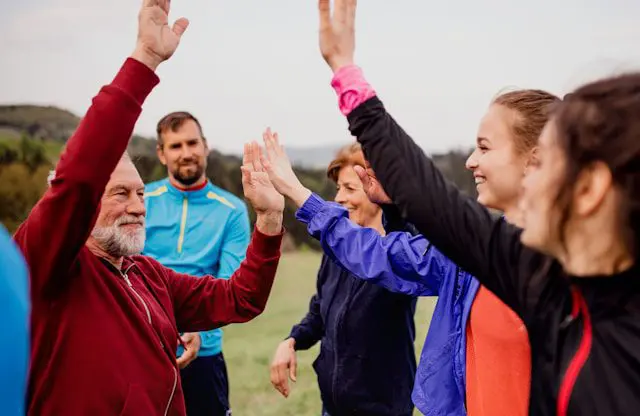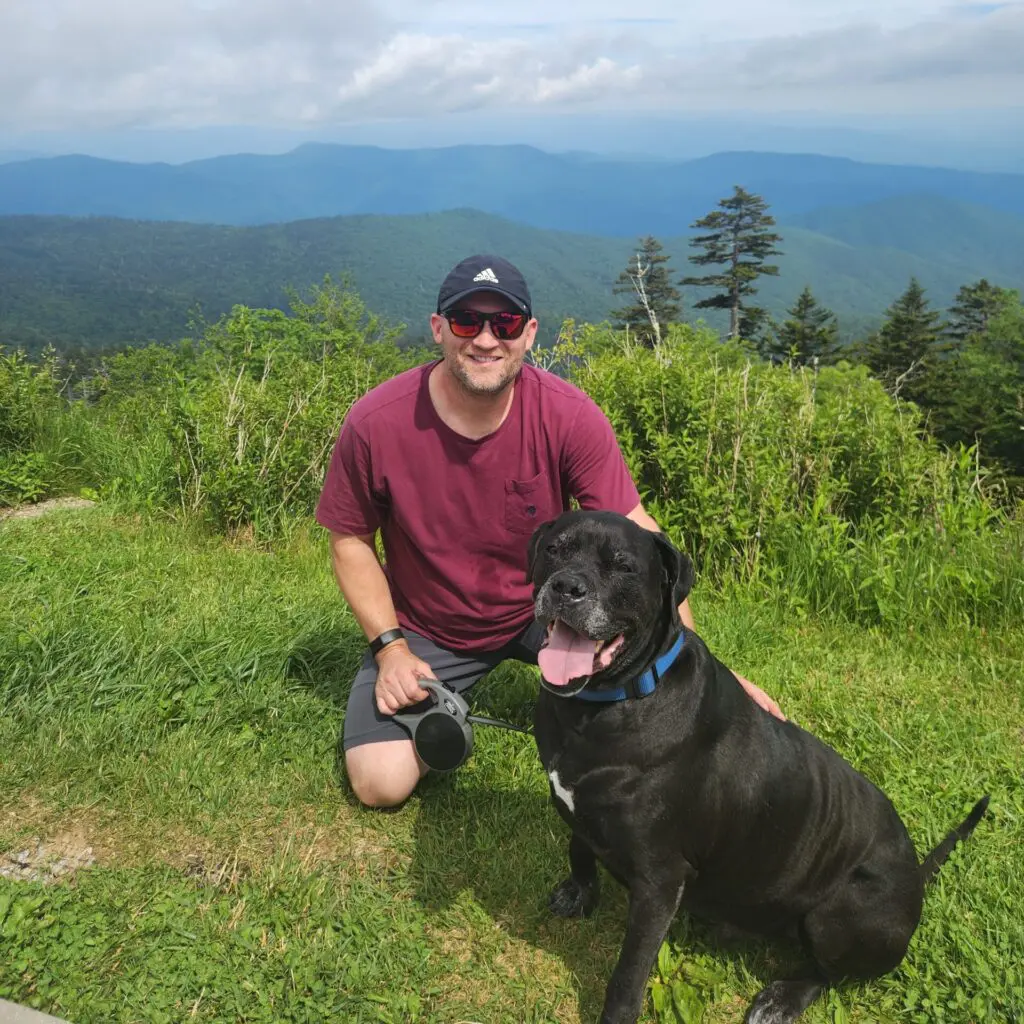Are you wondering how to quit coffee or stop drinking caffeine? Imagine waking up refreshed, without the need for a morning brew, and enjoying sustained energy throughout the day. This comprehensive guide will walk you through the process of how to quit coffee, offering practical steps, alternatives, and expert tips to ensure a smooth transition to a bean-free life.

Table of Contents
- Understanding Coffee’s Impact
- Benefits of Quitting Coffee
- How to Quit Coffee: Step by Step
- Overcoming Challenges
- Personal Growth and Community Support
- FAQs About Quitting Coffee
- Conclusion
Understanding Coffee’s Impact
Before diving into how to quit coffee, it’s crucial to understand its effects on your body:
Caffeine’s Impact on the Central Nervous System
Caffeine acts as a stimulant, blocking adenosine receptors in your brain. This leads to:
- Increased alertness and concentration
- Elevated heart rate and blood pressure
- Potential jitteriness and anxiety
- Disrupted sleep patterns
- Possible dependency over time
For example, regular coffee drinkers may find it difficult to feel awake or focused without their morning cup, a sign of caffeine dependency.
Long-term Health Implications of Regular Coffee Consumption
While moderate coffee consumption can have some benefits, excessive intake may lead to:
- Chronic sleep issues, affecting overall health and cognitive function
- Increased anxiety and stress levels
- Digestive problems, including acid reflux and stomach irritation
- Calcium loss, potentially affecting bone health over time
- Teeth staining and enamel erosion
It’s worth noting that these effects can vary from person to person, depending on factors like genetics and overall health.
Benefits of Quitting Coffee
Understanding the benefits can reinforce your commitment to quitting coffee:
Improved sleep quality and duration:
- Fall asleep more easily without caffeine in your system
- Experience deeper, more restorative sleep cycles
Enhanced mental clarity and focus without caffeine crashes:
- Maintain steady concentration throughout the day
- Avoid the mid-afternoon slump often associated with coffee consumption
Lower anxiety levels and more stable mood:
- Reduce caffeine-induced jitters and nervousness
- Experience more consistent emotional states
Better cardiovascular health:
- Potentially lower blood pressure
- Reduce strain on your heart from caffeine’s stimulant effects
Improved digestion and nutrient absorption:
- Decrease likelihood of acid reflux and stomach irritation
- Enhance your body’s ability to absorb certain nutrients
Healthier teeth and gums:
- Reduce teeth staining
- Lower risk of enamel erosion from acidic coffee
Financial savings:
- Cut costs on daily coffee purchases
- Save money on home brewing equipment and supplies
Many people report feeling more in tune with their body’s natural rhythms after quitting coffee, leading to an overall sense of well-being.

How to Quit Coffee: Step by Step
Suggested Timeline
The first step in how to quit coffee is setting achievable goals. Here’s a suggested timeline:
| Week | Goal | Action |
|---|---|---|
| 1-2 | Reduce intake by 25% | If you drink 4 cups, cut down to 3 |
| 3-4 | Reduce by another 25% | Now down to 2 cups per day |
| 5-6 | Cut down to 1 cup per day | Maintain this for two weeks |
| 7-8 | Switch to decaf or quit entirely | Choose based on your ultimate goal |
This gradual approach can help minimize withdrawal symptoms as you quit coffee. Remember, it’s okay to adjust this timeline based on your personal needs and experiences. For example, if you are drinking two cups per day, start at Week 3 – 4 and move from there.
Common Triggers and Ways to Address Them
Developing a detailed plan is crucial when figuring out how to quit coffee. Identify your triggers and think of strategies to address them. Here’s how you can handle some common triggers:
Morning routine
Trigger: Many people rely on coffee to kickstart their day.
Strategy: Replace your morning coffee with a warm lemon water or a caffeine-free herbal tea. Incorporating a morning exercise routine or a few minutes of meditation can also energize your body naturally. See more below for healthy coffee alternatives and a sample morning routine without coffee.
Work stress
Trigger: Coffee often serves as a coping mechanism for workplace pressure.
Strategy: Instead of reaching for coffee, take short breaks to walk or stretch. These activities can help relieve stress and improve circulation, boosting your energy more sustainably. Additionally, try engaging in brief relaxation exercises, such as deep breathing or progressive muscle relaxation.
Social situations
Trigger: Coffee breaks with colleagues or meetups at cafes.
Strategy: Suggest non-coffee alternatives when meeting with friends or colleagues, like going for a walk or meeting in a place that offers a variety of beverages. Herbal teas or fresh juices can be great substitutes when you’re at cafes.
After meals
Trigger: Some people have a habit of having coffee with or after meals.
Strategy: Finish your meals with mint tea, which aids digestion, or a warm golden milk made with turmeric, which is soothing and beneficial for digestion. These can be comforting and healthy rituals to replace coffee.
Fatigue or boredom
Trigger: Turning to coffee for an energy boost.
Strategy: If you’re feeling tired, assess whether you’re getting enough sleep or if you’re genuinely bored. For fatigue, try short power naps or switching to a different, more engaging task. For boredom, keep engaging books, puzzles, or even a sketchbook handy to stimulate your mind without caffeine.
Implementing these strategies requires some adjustment, but they can significantly help in reducing your dependence on coffee by replacing it with healthier habits. Each strategy not only helps to avoid coffee but also contributes to overall well-being, making your journey to a coffee-free life both successful and enjoyable.

Other Healthy Alternatives to Help You Quit Coffee
Discover delicious alternatives as you quit coffee:
- Herbal teas:
- Peppermint: Refreshing and aids digestion
- Chamomile: Calming and promotes relaxation
- Rooibos: Rich in antioxidants and caffeine-free
- Energizing smoothies:
- Green smoothie: Spinach, banana, and chia seeds for sustained energy
- Berry blast: Mixed berries, yogurt, and a dash of honey for a morning boost
- Learn more about the gut-healing benefits you can get from smoothies
- Chicory root coffee: A coffee-like beverage made from roasted chicory root, offering a similar taste without caffeine
- Golden milk: A warming turmeric latte that can be a comforting replacement for coffee
- Matcha green tea: Contains some caffeine but less than coffee, and rich in antioxidants
Experiment with these alternatives to find what works best for you. Many people find that having a warm beverage in the morning, even if it’s not coffee, helps maintain their routine.
Building a Coffee-Free Morning Routine
Learning how to quit coffee involves creating new routines. Here’s a sample coffee-free morning routine:
- Wake up naturally or use a sunrise alarm clock. The Hatch Restore 2 Sunrise Alarm Clock is a smart sleep clock that features soothing sounds and calming colors at night, along with a gentle sunrise alarm in the morning to help you restore healthier sleep habits.
- Do some light stretching or yoga (5-10 minutes). Here are a few beginner yoga poses to help your posture to help you get started.
- Drink a large glass of water with lemon
- Take a cool shower to energize your body
- Eat a nutrient-rich breakfast (e.g., oatmeal with fruits and nuts)
- Go for a short walk or do some quick exercises
- Enjoy a cup of herbal tea or a green smoothie
This routine naturally boosts your energy without relying on coffee. Adjust it to fit your schedule and preferences.
Staying Energized Without Coffee
Discover natural ways to maintain energy levels as you quit coffee:
- Practice deep breathing exercises or meditation to increase mental clarity and oxygen flow
- Stay well-hydrated (aim for 8 glasses of water daily)
- Take short power naps (10-20 minutes) when needed
- Incorporate regular breaks during work
- Eat energy-boosting, plant-based snacks (e.g., nuts, fruits, dark chocolate)
- Ensure you’re getting enough B vitamins and iron in your diet, which are crucial for energy production
Remember, it’s normal to experience fluctuations in energy as your body adjusts to life without coffee. Be patient with yourself during this transition.

Overcoming Challenges
Quitting coffee comes with its share of challenges. Here’s how to navigate them:
Managing Withdrawal Symptoms and Cravings
Be prepared for potential headaches, fatigue, and irritability as your body adjusts to life without coffee. These symptoms typically peak within the first 2-9 days after quitting and can last up to two weeks.
To ease this transition:
- Stay hydrated: Drink plenty of water to help flush out toxins and reduce headaches
- Get plenty of rest: Allow your body extra sleep if needed during this adjustment period
- Exercise regularly: Light exercise can boost energy and mood naturally
- Consider natural supplements: Magnesium or L-theanine may help with stress and anxiety (consult with a healthcare provider first)
- Practice stress-relief techniques: Try deep breathing, meditation, or yoga to manage irritability. See our list of 12 fun activities to do for stress relief.
For cravings:
- Stay busy with engaging activities to distract yourself
- Use sensory substitutes (e.g., coffee-scented candles for the aroma)
- Practice mindfulness to observe cravings without acting on them
- Chew sugar-free gum or have a piece of dark chocolate
Remember, cravings typically last only a few minutes. Having a plan to handle them can make a big difference in your success.

Staying Motivated
Set small goals, track your progress, and remind yourself of the benefits you’ve experienced since quitting coffee. Some strategies include:
- Keep a journal to document improvements in sleep, mood, and energy
- Use a habit-tracking app to visualize your progress
- Set milestones (e.g., 1 week, 1 month coffee-free) and reward yourself
- Join a challenge or bet with friends for added motivation
- Read success stories from others who have quit coffee
- Reward yourself for good habits
Celebrating your achievements, no matter how small, can help reinforce your commitment to a coffee-free lifestyle.
Personal Growth and Community Support
Quitting coffee can be a journey of personal growth. Many people report:
- Improved self-awareness of their energy patterns
- Enhanced ability to manage stress without stimulants
- Greater appreciation for natural energy boosters like exercise and nutrition
Explore new interests and hobbies that may have been overshadowed by coffee rituals. This could include morning yoga, exploring new breakfast recipes, or taking up a new sport.
Building a support system is crucial. Share your goals with friends and family, or join online communities focused on quitting coffee for encouragement and shared experiences. Two options include:
- r/decaf on Reddit: A supportive community of people quitting or reducing caffeine
- Caffeine Addicts Anonymous: A fellowship of men and women who share their experience, strength, and hope with each other that they may solve their common problem and help others recover from caffeine addiction.
Consider finding an accountability partner who’s also trying to quit coffee or asking a friend to check in on your progress regularly.
FAQs About Quitting Coffee
How long does it take to break a coffee addiction?
Breaking a coffee addiction typically takes 7-14 days for physical withdrawal symptoms to subside. However, the psychological habit may take longer to overcome, often up to 30-60 days. Factors affecting this timeline include:
- Your daily caffeine intake
- How long you’ve been a regular coffee drinker
- Individual physiology and metabolism
- Stress levels and lifestyle factors
Remember, everyone’s journey is unique, and it’s important to be patient with yourself during the process.
Will I lose weight by quitting coffee?
Quitting coffee alone doesn’t guarantee weight loss, but it may contribute to changes in your weight for several reasons:
- Reduced calorie intake: If you regularly consume coffee with high-calorie additives like cream, sugar, or flavored syrups, eliminating these can lead to a calorie deficit.
- Improved sleep quality: Better sleep can regulate hormones that control appetite and metabolism.
- Decreased bloating: Some people experience reduced bloating when they stop consuming coffee.
- Changed eating habits: Without caffeine as an appetite suppressant, you may notice changes in your eating patterns.
For significant weight loss, combine quitting coffee with a balanced diet and regular exercise.
Can I drink decaf while quitting coffee?
Yes, you can drink decaf while quitting coffee, but consider these points:
- Decaf still contains small amounts of caffeine (about 2-12 mg per cup, compared to 95 mg in regular coffee).
- It can be a helpful transition tool, especially for those who enjoy the ritual of drinking coffee.
- Gradually reduce decaf intake if your goal is to be completely caffeine-free.
- Be aware that decaf coffee still contains acids that may affect digestion or dental health.
If you choose to use decaf as a stepping stone, plan to eventually phase it out for a truly caffeine-free lifestyle.
What’s the best time of year to quit coffee?
The best time to quit coffee depends on your personal circumstances, but consider these factors:
- Stress levels: Choose a period with fewer stressors and commitments.
- Seasonal considerations: Some find it easier to quit during warmer months when energy levels are naturally higher.
- Work schedule: If possible, align your quit date with a less demanding work period or vacation time.
- Personal readiness: The best time is when you feel mentally prepared and committed to the change.
Ultimately, any time you feel ready can be the right time. Don’t wait for the “perfect” moment – start when you’re committed to making the change.
Are there any risks to quitting coffee cold turkey?
Quitting coffee cold turkey is not dangerous for most people, but it can lead to more severe withdrawal symptoms:
- Intense headaches
- Extreme fatigue
- Irritability and mood swings
- Difficulty concentrating
- Nausea or upset stomach
These symptoms can be particularly challenging for those with high daily caffeine intake. A gradual approach is often more comfortable and sustainable, allowing your body to adjust slowly and reducing the likelihood of relapse. If you have any underlying health conditions or concerns, consult with a healthcare provider before quitting caffeine abruptly.

Conclusion
If you’re wondering how to quit coffee and embrace a healthier lifestyle, this guide offers the strategies and insights you need to succeed. By reducing your caffeine intake gradually, exploring delicious and energizing alternatives, and adjusting your daily routines, you can mitigate withdrawal symptoms and discover a new sense of vitality. The journey to quit coffee may challenge your habits and resilience, but the benefits to your mental clarity, sleep quality, and overall well-being are invaluable. Start your caffeine-free journey today and see how these changes can enhance your life—step by step, cup by cup.
Take Action!
Ready to kickstart your coffee-free journey or have stories to share? Comment below and subscribe to our Gorilla Gazette newsletter for exclusive tips, motivational stories, and caffeine-free ideas to support your path to a healthier, more energized you!



Leave a Reply